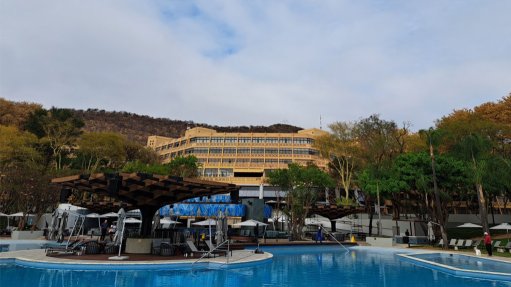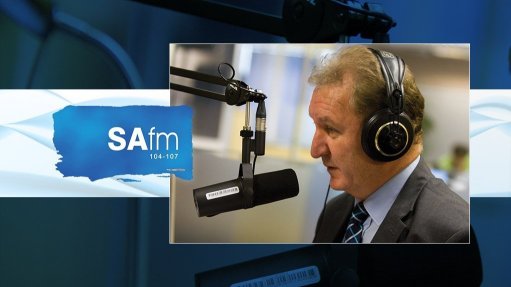Telecoms-linked fraud costing South Africa more than R5-billion a year
A new report by the Communication Risk Information Centre (COMRiC) has revealed that telecommunications-linked fraud is costing South Africa R5.3-billion a year, with nearly 60% of mobile banking fraud linked to SIM swap crimes.
The ‘Telecommunications Sector Report 2025’ highlights a surge in criminal activity targeting both digital systems and physical infrastructure.
“South Africa’s telecommunications sector continues to face complex, layered threats, including SIM swap fraud, subscription and identity fraud, ransomware attacks and infrastructure sabotage. The illicit use of SIM boxes, synthetic identity creation and criminal bypassing of SIM authentication processes present evolving dangers.”
Top common cyberthreats include rapidly growing ransomware attacks, synthetic identity fraud and business email compromise, as well as phishing scams, which cost South Africans R200-million in 2023 – a 50% increase on the previous year.
Cyberattacks increased by 126% globally, while fraud in South African telecommunications- linked transactions increased by 78% from 2022 to 2023.
According to the report, cybercrime is costing the South African economy about R2.2-billion a year, while the average cost of a data breach in the country reached R53.1-million in 2024.
Communications infrastructure also continues to face physical threats, including theft and vandalism, copper cable theft, energy instability, illegal connections and environmental risks such as floods, fires and extreme weather.
Infrastructure sabotage continues to inflict billions in economic damage, destabilising network uptime, emergency services and national connectivity.
Infrastructure-related losses, driven by copper cable and lithium battery theft, vandalism and sabotage, exceeded R7-billion across the telecommunications, energy and logistics sectors.
“Telecommunications crime is no longer a siloed challenge. It touches everything from banking and energy to personal security and national infrastructure,” COMRiC points out.
However, despite the deepening complexity of these threats, the report also reflects growing resilience across the sector, with momentum building.
Artificial-intelligence- (AI-) led prevention, biometric authentication, regulatory pressure and cross-industry collaboration are showing measurable results.
Between March 2024 and April 2025, reported telecommunications fraud cases declined owing to improved real-time network monitoring, AI-powered fraud detection, real-time analytics, biometric SIM registration adoption and stronger inter-agency response coordination, which are collectively starting to shift the balance.
Mobile network operators processed 3 600 SIM swap requests between January and April 2025, of which only 3% were confirmed to be fraudulent following deeper authentication checks.
Mobile operators have also strengthened defences through participation in the GSMA Open Gateway initiative, enabling the use of secure APIs to combat subscription fraud and digital identity theft.
COMRiC CEO Thokozani Mvelase says the findings underscore both the urgency for national action to address the challenge and the momentum behind solutions.
“The 2025 report shows that while the threat landscape is escalating, so too is the sector’s capacity to respond. South Africa must now move beyond reactive measures and build a resilient, collaborative defence framework that spans the public and private sectors.”
The report calls for the immediate implementation of a National Cybersecurity Resilience Plan that mirrors the structured response already under way in the financial services sector, as well as a sector-wide Computer Security Incident Response Team to facilitate intelligence sharing, coordinated responses and early threat detection.
Comments
Press Office
Announcements
What's On
Subscribe to improve your user experience...
Option 1 (equivalent of R125 a month):
Receive a weekly copy of Creamer Media's Engineering News & Mining Weekly magazine
(print copy for those in South Africa and e-magazine for those outside of South Africa)
Receive daily email newsletters
Access to full search results
Access archive of magazine back copies
Access to Projects in Progress
Access to ONE Research Report of your choice in PDF format
Option 2 (equivalent of R375 a month):
All benefits from Option 1
PLUS
Access to Creamer Media's Research Channel Africa for ALL Research Reports, in PDF format, on various industrial and mining sectors
including Electricity; Water; Energy Transition; Hydrogen; Roads, Rail and Ports; Coal; Gold; Platinum; Battery Metals; etc.
Already a subscriber?
Forgotten your password?
Receive weekly copy of Creamer Media's Engineering News & Mining Weekly magazine (print copy for those in South Africa and e-magazine for those outside of South Africa)
➕
Recieve daily email newsletters
➕
Access to full search results
➕
Access archive of magazine back copies
➕
Access to Projects in Progress
➕
Access to ONE Research Report of your choice in PDF format
RESEARCH CHANNEL AFRICA
R4500 (equivalent of R375 a month)
SUBSCRIBEAll benefits from Option 1
➕
Access to Creamer Media's Research Channel Africa for ALL Research Reports on various industrial and mining sectors, in PDF format, including on:
Electricity
➕
Water
➕
Energy Transition
➕
Hydrogen
➕
Roads, Rail and Ports
➕
Coal
➕
Gold
➕
Platinum
➕
Battery Metals
➕
etc.
Receive all benefits from Option 1 or Option 2 delivered to numerous people at your company
➕
Multiple User names and Passwords for simultaneous log-ins
➕
Intranet integration access to all in your organisation

















